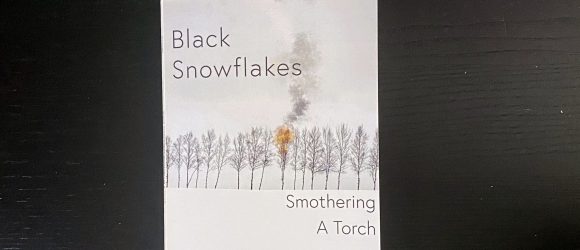Review: Black Snowflakes Smothering A Torch: How to Talk to Your Veteran – A Primer by Ryan Stovall
- At November 19, 2022
- By Bob Howe
- In Poetry, Reviews
 0
0

“having shot children” is the first line of the first poem in Ryan Stovall’s poetry collection, Black Snowflakes Smothering a Torch. War didn’t let him off easy, and his book isn’t letting us off easy.
Stovall served as a Green Beret (U.S. Army Special Forces) medic during the war in Afghanistan. Twice wounded, he has seen the elephant and been seen by it. He styles his collection a primer for civilians to speak to veterans about their experiences, but the poems also hold a mirror up to civilian life—and not in a flattering way:
I want to win the New way
the urban stylish civilized way
the learned pretentious academic way
the polite two-faced ingratiating way
the slap you on the shoulder
shoot you in the back way
if it will keep my memories at bay
then I will smile and smile
and be a villain
This is an intimate book. Stovall doesn’t digest war for the reader: he brings it back raw and sets it on the kitchen table, burned and red and leaking blood on the place settings. If you’re going to “talk to your veteran” (as he styles it), you need to taste some of war’s melancholic illogic, brute humor, and horror unfiltered. The title poem—the longest in Stovall’s collection—is a chain link fence of associations that marks the boundary between the civilian world and the world of war. Like most great poetry it is felt rather than understood: a shock wave that can leave the unarmored reader invisibly changed:
even some of us pipe-hitting HALO studs
return afraid of everything
from sudden movements
to failure
from disapproval
to dissecting aortas
to displaying cowardice
or courage
This book is not war tourism, and it is not easy—hardest, it seems, for Stovall himself (“some rocks should never be pushed aside”). His ambivalence about seeing and telling is part of what gives his poetry power and depth. Black Snowflakes is deeply humanistic approach to war writing that does not explain nor condescend. As poetry, as truth telling, as confessional, as jeremiad, this collection will live long in the attic of your soul.
